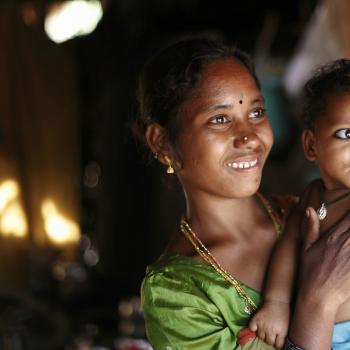
We are pleased to announce new funding from the Children's Investment Fund Foundation for a research and policy programme on child marriage in India and early education in Ethiopia.
This funding from CIFF will enable the Young Lives team to carry out further analysis of the existing longitudinal dataset and to work with government in India and Ethiopia to evaluate the implications of the findings for government policy and programming.
In India, where rates of child and early marriage and fertility remain high, the Young Lives team will explore what would help girls and young women to delay marriage and fertility, providing a double pay-off for the young women themselves, and for their children. Using existing opportunities (a pilot programme working with young women in Rajasthan coordinated by the International Center for Research on Women), a team from the Institute of Fiscal Studies working with Young Lives, will apply the evidence to propose scalable, cost-effective options to tackle these issues.
In Ethiopia, Young Lives will work with policymakers to build awareness of the importance of intervening in the earliest phase of life, including the 1,000 days of life by developing an Ethiopia-specific evidence base that makes a compelling case for extending high-quality early education to poorer children. The Young Lives team will conduct a review and an evaluative study of sustainable, innovative approaches to early education.
Young Lives director Jo Boyden says
"We know that children's outcomes are influenced by early circumstances, but we need to better understand how specific factors impede or enhance children's development. Longitudinal studies that track children over time can bring uniquely powerful insights into the factors affecting children's growth. They build evidence over time identifying groups that are affected the most, and at what points in children's lives recovery or catch-up can happen."
Responding to the research needs of government should ensure local ownership and sustainability. The Young Lives team will work with Ministry officials to ensure that the analysis is tailored to particular national strategies (such as the Adolescent Health Strategy in India) and policy windows (for example the Growth Transformation Plan in Ethiopia). The team will work together with other local institutions and stakeholders to generate the findings as well as implement them, thus ensuring that there is local capacity to analyse and apply the data.

We are pleased to announce new funding from the Children's Investment Fund Foundation for a research and policy programme on child marriage in India and early education in Ethiopia.
This funding from CIFF will enable the Young Lives team to carry out further analysis of the existing longitudinal dataset and to work with government in India and Ethiopia to evaluate the implications of the findings for government policy and programming.
In India, where rates of child and early marriage and fertility remain high, the Young Lives team will explore what would help girls and young women to delay marriage and fertility, providing a double pay-off for the young women themselves, and for their children. Using existing opportunities (a pilot programme working with young women in Rajasthan coordinated by the International Center for Research on Women), a team from the Institute of Fiscal Studies working with Young Lives, will apply the evidence to propose scalable, cost-effective options to tackle these issues.
In Ethiopia, Young Lives will work with policymakers to build awareness of the importance of intervening in the earliest phase of life, including the 1,000 days of life by developing an Ethiopia-specific evidence base that makes a compelling case for extending high-quality early education to poorer children. The Young Lives team will conduct a review and an evaluative study of sustainable, innovative approaches to early education.
Young Lives director Jo Boyden says
"We know that children's outcomes are influenced by early circumstances, but we need to better understand how specific factors impede or enhance children's development. Longitudinal studies that track children over time can bring uniquely powerful insights into the factors affecting children's growth. They build evidence over time identifying groups that are affected the most, and at what points in children's lives recovery or catch-up can happen."
Responding to the research needs of government should ensure local ownership and sustainability. The Young Lives team will work with Ministry officials to ensure that the analysis is tailored to particular national strategies (such as the Adolescent Health Strategy in India) and policy windows (for example the Growth Transformation Plan in Ethiopia). The team will work together with other local institutions and stakeholders to generate the findings as well as implement them, thus ensuring that there is local capacity to analyse and apply the data.

